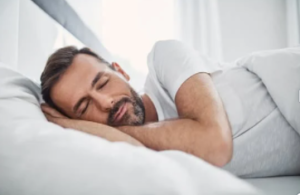World Sleep Day, 18th March 2022… Tips on improving your sleep
One of the best things you can do to protect your brain and long-term mental health is to ensure restful sleep. While you sleep your brain begins the nightly process of reorganising the events of the day. Important details and information are embedded while insignificant ones are archived or allowed to fade.

How to deal with difficulties with your sleep
R.E.S.T
R outine
E nvironment
Stimulation Control
T hinking
Routine
Sleep likes routine and like any routine it should be specific to you, taking into account whether you are an early bird or night owl or how many hours you need to feel rested. Try to go to bed and get up at similar times each day, even on the weekend.
Environment
-Setup your bedroom environment in a way that sets you up for good sleep. A cool room (around 20°C) is generally recommended, although you might have different preferences. Don’t let your feet get too cold, it can cause blood to be redirected to the trunk and keep body temperature elevated which may interfere with sleep.
-Keep your room as dark as possible. An eye mask is a good option if your curtains do not keep out the light.
-Tidy up. For some people clutter and mess can increase levels of stress (others don’t mind so much). Keeping the bedroom tidy can induce a sense of calm which can promote sleep
-Avoid working in the bedroom. Eat, watch TV, scroll social media elsewhere. This helps to create an association in your mind between bedroom and sleep.
Stimulation Control
Stimulation is the enemy of sleep, some habits and substances can increase your level of alertness and impact your sleep.
-Try not to go to bed on a full stomach. Digestion raises body temperature which can impair sleep onset. Any sugars in your meal will be absorbed quickly, making you more alert.
-Try to mange your fluid intake- getting up to wee in the night can disrupt your sleep
-Caffeine hangs around in the body for several hours after you’ve consumed it. Even if it doesn’t keep you up it can impact your sleep quality. If you struggle with sleep try to avoid caffeine after midday.
-Nicotine also impacts sleep, if you do smoke try to avoid doing so in the two hours before bed.
-Alcohol is a sedative (it can make you fall asleep more quickly) but it blocks deep sleep. If you drink regularly try to keep it within recommend limits and have at least 2 alcohol free days/week.
Avoid using light emitting devices (laptops/smartphones/e-readers) an hour before bed. If you must use a device switch it to night mode or download an app that blocks the blue light emission.
Thinking
Sometimes worries can get in the way of a good nights sleep. If this sounds like you
-Everyday anxieties (a task you have to do the next day, items you need to remember) can be effectively managed with a worry book. Keep a notebook or pad of paper and write down any last-minute reminders that have the habit of cropping up just as you head to bed. This can help reassure you that you won’t forget them but it wont be spinning around in your mind all night.
Other Top Tips
Aim to get at least 30mins of natural light in the morning or at lunchtime. This will help anchor your circadian rhythm and promote healthy sleep
There are soothing sounds and sleep stories available online to help you drift off to sleep. Search youtube for ‘sleep stories’ or try https://youtu.be/O4x9ssJ0jfM
www.sleepstation.org is an online cognitive behavioural therapy for insomnia. Access is free for NHs patients or available to purchase.
Adapted from ‘How to build a healthy brain’ by Kimberly Wilson